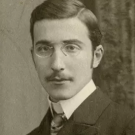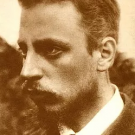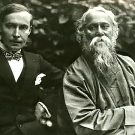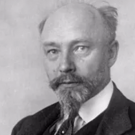![Hermann Hesse in 1946 Image: Nobel Foundation [Public domain], via Wikimedia Commons](https://scotstagore.org/wp-content/uploads/2019/02/Hermann-Hesse-135x135.png)
Hermann Hesse and Rabindranath Tagore by Martin Kaempchen
Hermann Hesse (1877-1962) never met Rabindranath Tagore, although one would have expected him, more than anybody else, to seek and maintain a contact with the Indian poet. Hesse had been involved with Indian Thought since his childhood. His parents were Protestant Christian missionaries in South India. Read more



